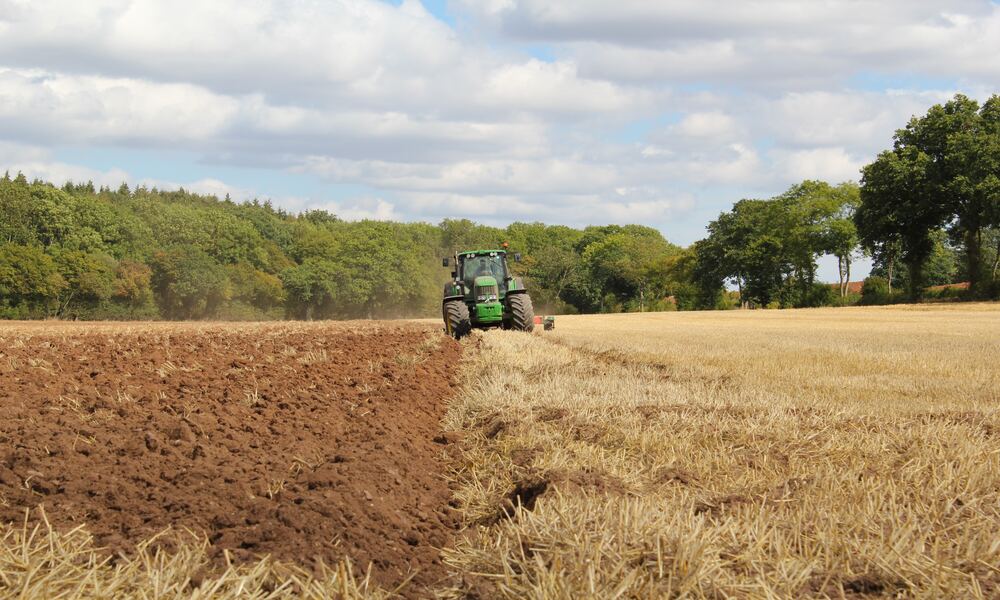I recently attended the IAgrM (Institute of Agricultural Management) conference in London and this year’s theme was “Technology V Tradition: The Future of Agricultural and Environmental Management.”
The event was really well attended and there were some great speakers, all debating the key issues in the relationship between food production and environmental protection in light of the climate crisis.
One speaker who really got me thinking was Sir Charles Godfray, who is the Director of the Oxford Martin Programme on the Future of Food at Oxford University. In his talk, he discussed how agriculture was both a problem but also represented a solution for climate change.
Legislating to create behaviour change
Sir Charles talked about legislation being used to change behaviour. Given the huge issues society faces around reaching net zero and keeping the planet below a 1.5°C temperature increase, legislating to bring about behaviour change seems absolutely necessary, using both carrot and stick.
Governments are sometimes reluctant to use legislation to help people make better decisions in their lives, but when those decisions impact everyone and not just the individual, there needs to be a recognition of collective responsibility.
One of the issues Sir Charles used as an example of how legislation can be used to change behaviours was the UK soft drinks industry levy, known to most of us as the ‘sugar tax.’ When it was introduced back in 2018, there was a huge furore. However, what actually transpired was that the levy led to significant reformulation of the amount of sugar in fizzy drinks. For the soft drinks industry, it didn’t impact the marketplace and there was no impact on profitability. There was also very little impact on consumer behaviour. People still drank fizzy drinks, but it had a hugely positive impact on health outcomes because the drinks contained much less sugar.
To achieve meaningful behaviour change, I believe there has to be both carrots and sticks. Hard choices have to be made to change the way we do things when the issues are so huge. But when it comes to food production I was taken by a quote from another speaker, Will Jennings, CEO of Rabobank UK who said “sustainably producing an unsustainable diet, is not sustainable.”
We should not be striving to achieve a sustainable food supply if it’s supporting an unsustainable diet which in turn creates enormous implications for our health and the health service.
Solving these issues is no easy task. They can’t be addressed in isolation, and that’s why we need collaboration across supply chains and sectors, involving government and the private sector.
The role a carbon tax could play in driving change
So what role could a carbon tax play in driving the change that’s needed. It goes back to the principle of ‘the polluter pays.’ That principle exists in many other parts of society.
Also, since 2005, the EU has had a levy on the price of carbon, which was mainly aimed at manufacturers of cement, iron, steel, and aluminium; those industries that are significant fossil fuel users.
Now the EU is introducing its Carbon Border Adjustment Mechanism (CBAM), with the aim of ensuring that the high carbon use industries that are importing products into the EU don’t undermine the green transition that needs to take place.
So in other words, there’s an acceptance that transitioning from a fossil fuel economy to a green, carbon neutral economy is going to be expensive and require a great deal of change. What you can’t do is expect the industries within your borders to make that transition at the same time as importing cheap goods.
Agriculture of course is one of the industries that is always cited as having a big carbon footprint, whether it’s due to methane from animals, usage of fossil fuels for energy or farming techniques. Could a carbon tax be one of the tools that helps drive the change that’s needed?
The carbon opportunity
As farms make up 70% of the UK’s land area, there are huge opportunities for the land to act as a carbon sink. There are many actions that those in the farming industry can take to sequester huge amounts of carbon.
So farmers could pay a carbon tax because they are carbon emitters, but also be rewarded for sequestering carbon. This would drive business behaviour both to reduce the cost of carbon tax by adopting lower emission production systems, and drive the adoption of actions to increase income from sequestration of carbon.
The subsequent behaviour change drives down emissions, through uptake of technology and changes in management techniques and drives up sequestration, again based upon land management changes.
It sounds plausible, but there has to be a willingness across the food supply chain to collaborate, to share the risks as well as the benefits, and for government to play its role.
The need for a holistic view
Whilst behaviour change is undoubtedly needed, what can’t happen is that all the risk and pain is placed at the farmers door without reward.
There needs to be a holistic approach around how we can achieve sustainable food supplies which support a sustainable diet, whilst improving biodiversity, and supporting a healthy planet. These conversations need to involve not just food producers and farmers, but also governments, and representatives from public health. Let’s talk about these issues while there’s still time.





